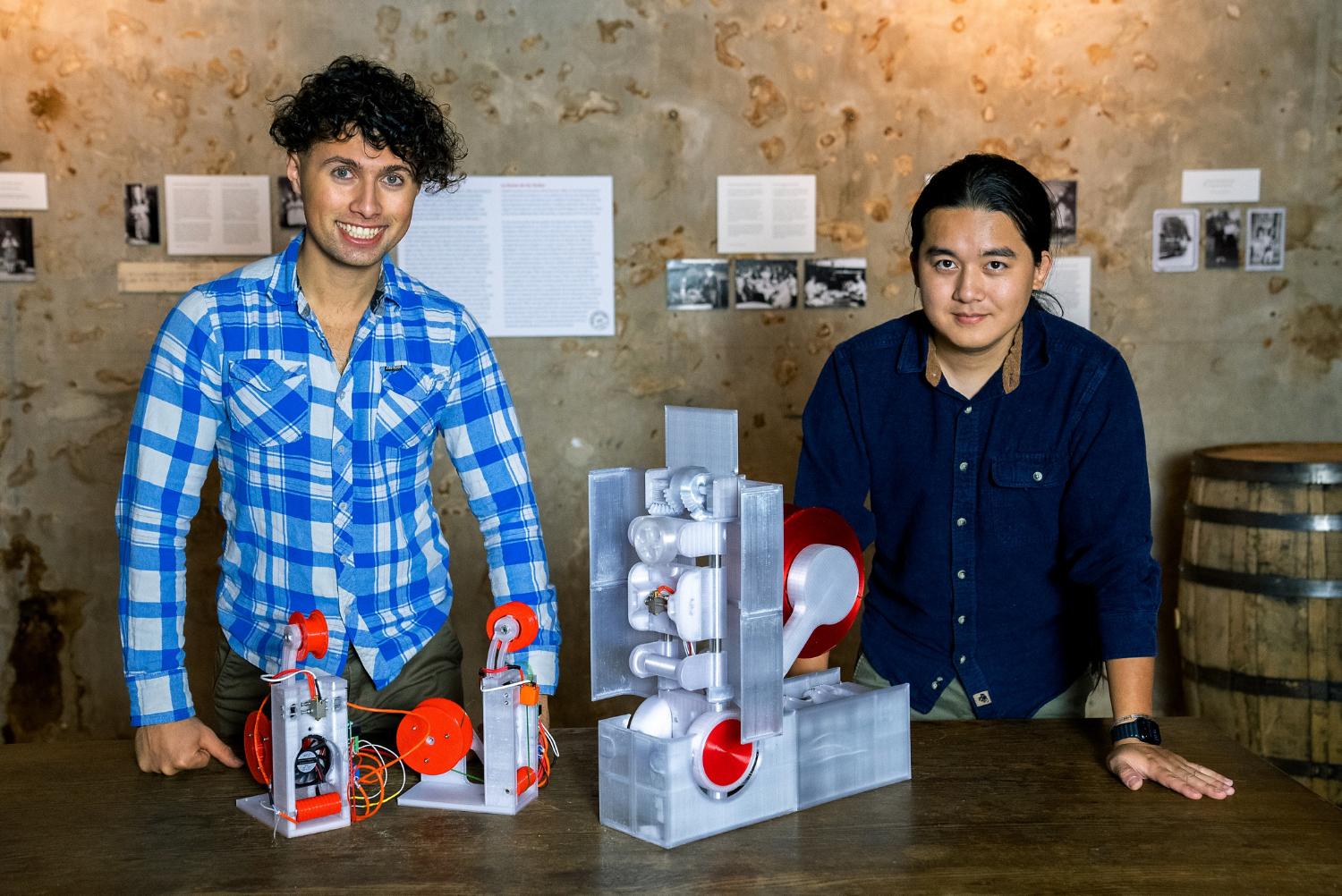

2022 James Dyson Award: Global Sustainability Winner awarded to Canadian entry Polyformer
Polyformer turns plastic bottles into 3D printer filament
November 15, 2022, 11:00PM EST - The brief of the James Dyson Award is simple: design something that solves a problem. This year’s Global Sustainability Award winner, selected by Sir James Dyson, answers that brief expertly with Polyformer, an open-source machine that recycles waste plastic into 3D printer filament. Swaleh Owais from McMaster University, Canada, and Reiten Cheng from ArtCenter College of Design, USA, joined forces to create Polyformer, which aims to solve two problems: recycling plastic bottles and accessibility to 3D printing.
Single-use plastic bottles is a worldwide pollution problem, with just over a quarter of total manufactured bottles being properly recycled and it taking upwards of 450 years to degrade.[i] The Polyformer gives disposable bottles a second life by transforming them into 3D printer filament. The machine can convert a standard 500ml plastic bottle into 20 grams of print filament.
3D printer filament can also be a costly purchase for many creators and hobbyists, but this is particularly true for those who live in developing countries.
-

-
Swaleh Owaisc, Polyforner: “While working at a 3D printing makerspace in Rwanda, we observed the high cost of importing 3D printer filament to the country. A standard roll of 1kg filament can retail for over $60 in the country, whereas the same filament can be purchased in Canada for a fraction of that price. In turn, 3D printing is less accessible for makers in such communities.”
Using the custom bottle cutter mechanism, the user cuts a plastic bottle into a continuous strip, which is then fed into the Polyformer extruder. After the filament is extruded from the nozzle, it is cooled and wrapped around the spool, which can then be inserted into any FDM 3D printer. Polyformer is an open-source project with all CAD, code and building instructions available on the team’s discord website. It was designed so it could be put together by makers with a manual.
Reiten Cheng, Polyformer: “We want people from around the world to be able to access Polyformer, which is why we’ve made it open to all. We’ve also designed it so that you can use a 3D printer to print many parts of the machine, or if desired, purchase the parts as needed.”
There are about 1,500 people inside the Polyformer community around the world, and about 30+ machines that have been built in countries like Rwanda, Argentina, Spain, France, Germany, Mexico, Paraguay, Canada and the USA.
Sir James Dyson, Founder and Chief Engineer, Dyson: “By turning used plastic bottles into 3D printer filament, Polyformer helps reduce the amount of waste going to landfill and provides a cheap and plentiful material for engineers and designers, especially in developing countries. Their idea will provide new opportunities for other inventors to prototype their ideas using 3D printing.”
The Polyformer team will use the prize money to deploy several Polyformers and Polyformer-Lites at their partner makerspaces in Rwanda. With these machines, local students, designers and makers will have access to low-cost 3D printer filament, all while keeping plastic bottles out of potential landfill.
Reiten Cheng: “It is a great honour to be the 2022 JDA international sustainability prize winner. We are incredibly thankful to the James Dyson Foundation for running this fantastic competition. Sir James Dyson is a personal hero to both of us. We have been actively following the James Dyson Award for our entire academic career. We are keen to follow in Sir James Dyson’s footsteps of designing elegant and useful products.”
[i] https://www.weforum.org/agenda/2022/06/recycling-global-statistics-facts-plastic-paper/
2022 Global James Dyson Award Winners
Read about all of the 2022 Global James Dyson Award winners here.
Discover Dyson

